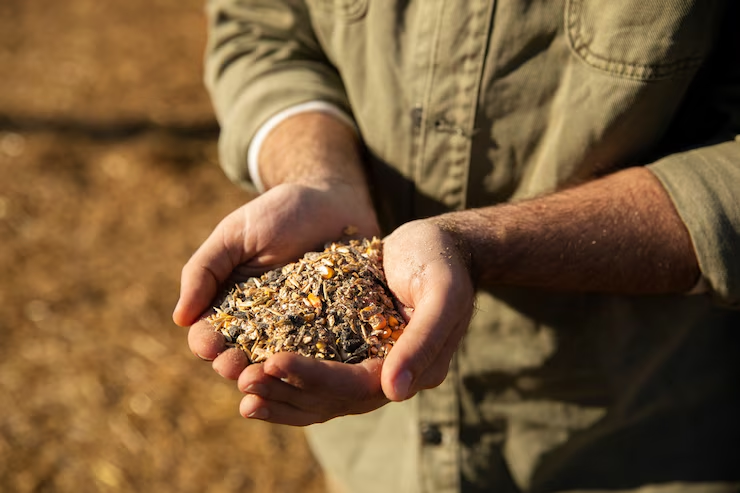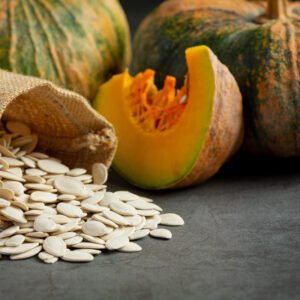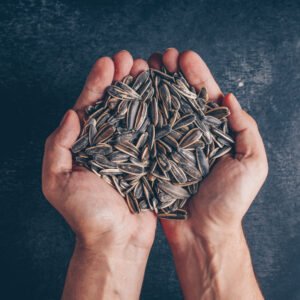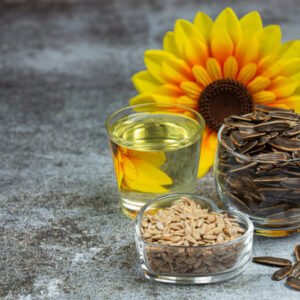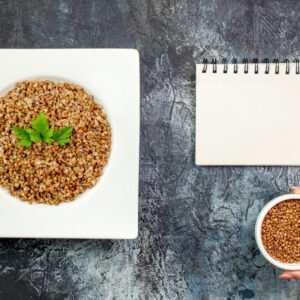Introduction
The foundation for any successful farming operation rests on choosing appropriate seeds. Seed quality plays a vital role in determining agricultural yield and crop resilience as well as profitability for both small-scale and large-scale farming operations. The vast selection of seed varieties makes choosing the optimal choice a daunting task.
Our complete guide provides essential guidance on seed selection by examining crucial elements to look for, exploring seed types available in the market, and sharing expert advice to optimize your farming harvest.
Additionally, we’ll explore how trusted Agricultural Products Manufacturers like CMS Industries provide high-quality seeds to farmers worldwide.
Why Choosing the Right Seeds Matters
Seeds are the starting point of any agricultural endeavor. Picking the best-suited seeds ensures:
- Higher crop yield – Quality seeds lead to better germination and productivity.
- Disease resistance – Some seeds are bred to resist pests and fungal infections.
- Climate adaptability – Certain varieties thrive in specific weather conditions.
- Profitability – Investing in superior seeds reduces losses and increases ROI.
Farmers who partner with best Agricultural Products Suppliers gain access to certified, high-performance seeds tailored to their needs.
Types of Seeds for Farming
Different crops require different seed types. Understanding these categories helps in making informed decisions.
1. Open-Pollinated Seeds (OP)
- Produces plants identical to the parent plant.
- Ideal for seed saving and organic farming.
- Examples: Heirloom tomatoes, beans, and corn.
2. Hybrid Seeds (F1)
- Cross-bred from two different parent plants for desirable traits.
- Offers higher yield and disease resistance.
- Cannot be saved for replanting (second-generation seeds lose traits).
3. Genetically Modified (GMO) Seeds
- Engineered for specific traits like pest resistance or drought tolerance.
- Controversial but widely used in commercial farming.
- Requires compliance with local regulations.
4. Organic Seeds
- Certified non-GMO and untreated with synthetic chemicals.
- Best for organic farming and eco-conscious growers.
5. Treated Seeds
- Coated with fungicides or insecticides to protect young plants.
- Enhances germination and early growth.
Choosing the right type depends on farming goals, budget, and environmental factors.
What Is the Importance of Seeds in Agriculture?
Seeds are the cornerstone of agriculture, serving as the fundamental building blocks for food production, economic stability, and environmental sustainability. Without high-quality seeds, farming would be impossible, making them one of the most critical resources in global agriculture. Here’s why seeds are indispensable:
1. Foundation of Food Security
Seeds determine the quality, quantity, and nutritional value of crops. High-yielding, disease-resistant seeds ensure a consistent food supply, reducing hunger and malnutrition. With a growing global population, farmers rely on superior seeds to meet increasing food demands sustainably.
2. Genetic Diversity and Crop Improvement
Seeds carry genetic traits that influence crop resilience, taste, and adaptability. Plant breeders and scientists continuously develop improved seed varieties to withstand climate change, pests, and diseases. Preserving seed diversity (through seed banks) ensures future food security.
3. Economic Impact on Farmers
Quality seeds directly affect farmers’ income. High-germination, high-yield seeds reduce losses and increase profitability. Conversely, poor-quality seeds lead to crop failure, financial strain, and food shortages. Investing in certified seeds from trusted Agricultural Products Manufacturers ensures better returns.
4. Climate Resilience
Modern seed varieties are bred for drought tolerance, flood resistance, and heat adaptability. As climate change disrupts traditional farming, resilient seeds help farmers maintain productivity despite extreme weather conditions.
5. Reduction in Chemical Use
Disease-resistant and pest-tolerant seeds minimize the need for chemical pesticides and fertilizers. This lowers production costs, reduces environmental pollution, and supports organic farming practices.
6. Support for Sustainable Farming
Seeds play a key role in sustainable agriculture by enabling:
- Crop rotation (preventing soil depletion)
- Organic farming (using non-GMO, untreated seeds)
- Conservation agriculture (reducing soil erosion)
7. Global Trade and Market Influence
Seeds are a major agricultural commodity, driving international trade. Countries exporting high-quality seeds (like hybrid or GMO seeds) contribute significantly to global food systems. Farmers depend on top Agricultural Products Suppliers in India for access to premium seeds.
8. Seed Sovereignty and Farmer Independence
Access to locally adapted, open-pollinated seeds empowers farmers to save and replant them, reducing dependency on corporations. Seed sovereignty movements advocate for farmers’ rights to preserve and exchange traditional seed varieties.
9. Technological Advancements in Seed Science
Biotechnology has revolutionized seed production, introducing:
- Hybrid seeds for higher yields
- Biofortified seeds (rich in vitamins and minerals)
- GM seeds engineered for specific traits
10. Future of Agriculture Depends on Seed Innovation
With challenges like soil degradation, water scarcity, and population growth, continuous seed research is crucial. Innovations in seed technology will shape the future of farming, ensuring food security for generations.
Read More: Top Agricultural Products Supplier in India
Key Factors to Consider When Selecting Seeds
1. Climate and Soil Compatibility
- Temperature Tolerance – Some seeds thrive in heat, while others need cooler climates.
- Soil Type – Clay, loamy, or sandy soil affects seed performance.
- Rainfall Requirements – Drought-resistant vs. water-intensive crops.
2. Disease and Pest Resistance
Look for seeds labeled as resistant to common threats like:
- Blight (tomatoes, potatoes)
- Fusarium wilt (bananas, cucumbers)
- Aphids and beetles (soybeans, corn)
3. Growth Duration
- Short-season crops (60-90 days) – Radishes, lettuce.
- Long-season crops (120+ days) – Pumpkins, melons.
4. Yield Potential
High-yield seeds maximize output but may require more inputs (fertilizer, water).
5. Seed Certification
Always buy from certified suppliers like CMS Industries, ensuring quality and authenticity.
Where to Buy Quality Seeds?
Purchasing from trusted sources guarantees better germination and crop success.
1. Local Agricultural Stores
- Offer region-specific seeds.
- Immediate availability.
2. Online Seed Suppliers
- Wider variety and convenience.
- Ensure seller credibility (check reviews).
3. Government and Cooperative Programs
- Subsidized seeds for farmers.
- Often include expert guidance.
4. Reputable Manufacturers Like CMS Industries
As a leading Agricultural Products manufacturer, CMS Industries provides:
- Certified hybrid and open-pollinated seeds.
- Disease-resistant and high-yield varieties.
- Global distribution network.
Farmers looking for reliable Agricultural Products Suppliers can trust CMS Industries for premium seeds tailored to diverse farming needs.
How to Test Seed Quality Before Planting?
Before sowing, conduct these simple tests:
1. Germination Test
- Place 10 seeds on a damp paper towel.
- Keep in a warm place for a few days.
- Check sprouting rate (80 %+ is good).
2. Float Test
- Drop seeds in water.
- Viable seeds sink; hollow ones float.
3. Physical Inspection
- Look for uniform size, color, and no cracks.
Expert Tips for Maximizing Seed Performance
- Pre-soak seeds (24 hours) to speed up germination.
- Rotate crops to prevent soil depletion.
- Use organic mulch to retain moisture.
- Follow spacing guidelines to avoid overcrowding.
- Monitor soil pH for optimal growth conditions.
Read More: Sustainable Agriculture Solutions for Farmers
Conclusion
Selecting superior seeds stands as a pivotal element that determines farming achievements. Farmers who evaluate climate suitability along with disease resistance and supplier reliability can achieve substantial productivity gains.
Collaborating with reputable Agricultural Products Manufacturers, such as CMS Industries provides farmers with access to elite seeds that deliver superior performance results. This manual provides essential seed selection knowledge for both novice and seasoned farmers to help them achieve successful harvests.
FAQs
1. What is the difference between hybrid and heirloom seeds?
Hybrid seeds (F1) are cross-bred for traits like higher yield and disease resistance but cannot be saved for replanting. Heirloom seeds are open-pollinated, genetically stable, and can be saved year after year, making them ideal for organic farming and seed preservation.
2. How do I know if seeds are suitable for my climate?
Check the seed packet for temperature, humidity, and soil requirements. Research local agricultural extensions or consult trusted Agricultural Products Suppliers like CMS Industries for region-specific recommendations. Drought-resistant or cold-tolerant varieties ensure better adaptability.
3. Are treated seeds safe for organic farming?
No, treated seeds are coated with synthetic fungicides or insecticides, disqualifying them from organic certification. Organic farmers should use untreated, non-GMO, or organically certified seeds from reliable Agricultural Products Manufacturers.
4. Can I save and replant hybrid seeds?
No, hybrid seeds lose their desirable traits in the next generation due to genetic instability. Farmers must purchase new hybrid seeds each season, whereas open-pollinated or heirloom seeds can be saved and replanted.
5. Where can I buy high-quality seeds in bulk?
Bulk seeds are available from agricultural cooperatives, government programs, and trusted suppliers like CMS Industries. Ensure seeds are certified, properly stored, and suited for your farming needs. Buying in bulk reduces costs but requires proper storage to maintain viability.

